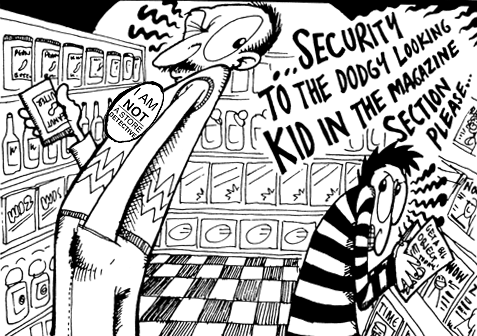Theft costs us all
This task is about finding information and making inferences.
Read the text ‘Theft costs us all’ to answer the following questions.

When people talk about shoplifting they are talking about a form of theft which involves taking something from a shop or store without paying for it, and with the intention of keeping it.
Just a lark? A few things to think about...
- Shoplifting is a CRIME. If you are over 17, caught, prosecuted and convicted, then you'll have a criminal record. This may get in the way of your future career and travel plans.
- An item selling at $1 may give the shopkeeper a profit of 25 percent. If that item is stolen, the shop must sell another three just to recover the value of the stolen item before they make profit at all. Plus stores may also have to put up their prices to cover that loss. You end up having to pay more.
- If you are barred from a store with a trespass notice you won't be able to go back there for a long time.
- Every theft counts. New Zealand stores are estimated to lose over $1 MILLION EVERY DAY to shoplifters. That's goods worth $358 million in just a year.
- Small retail businesses may find their total profit is eaten up by losses due to shoplifting. Which means they'll make no money. And that means they may have to close. So there'll be less choice of shops to go to and fewer jobs in your area for you and your mates.

